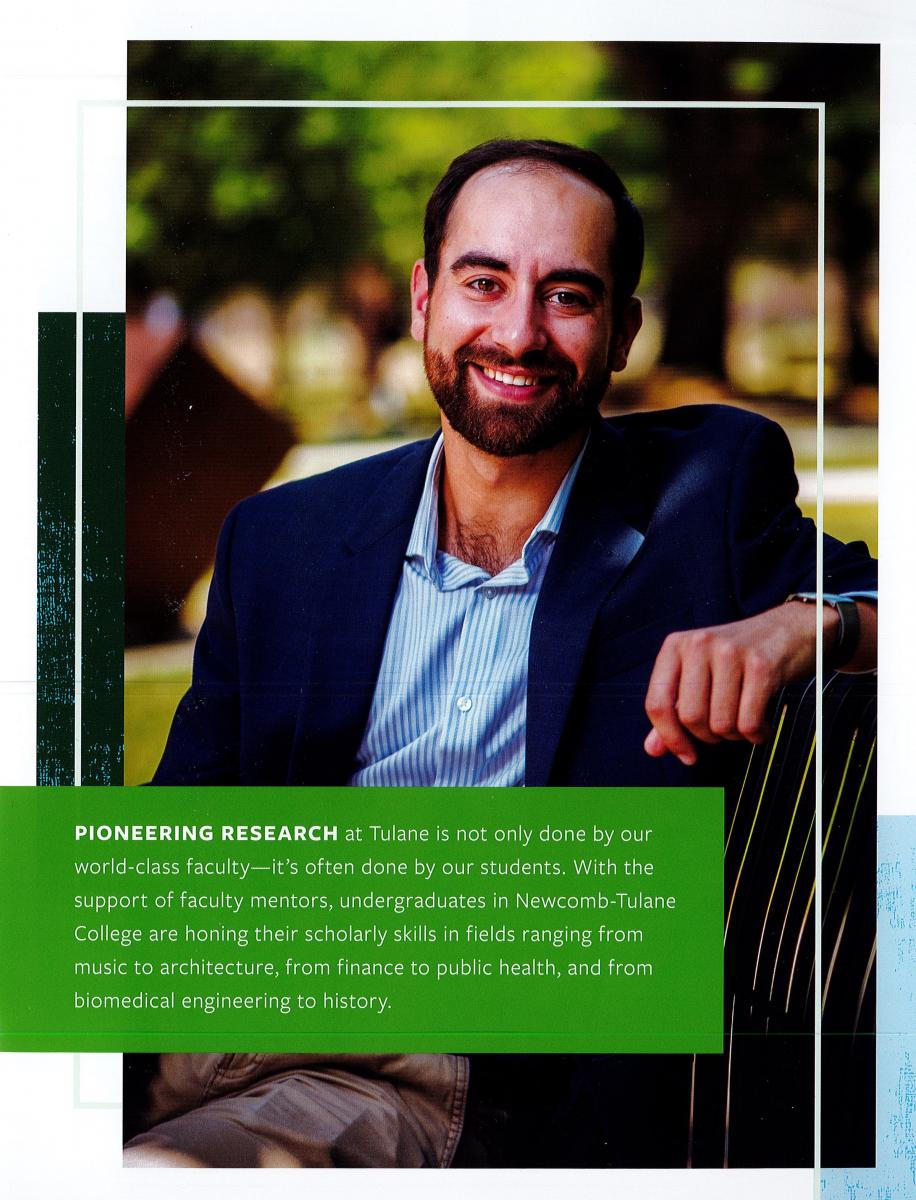
August 13, 2018
JACOB MORROW-SPITZER '18 first decided that he wanted to major in history while he was in high school. But it was a "Disasters in History" course that he took as a first-year student at Tulane that made him delve into his major choice even more enthusiastically. His love of history and Jewish Studies, his second major, has resulted in his senior honors thesis, The Appointee, the Democrat, and the Redeemer: Three Jewish Mayors in Post-Civil War Louisiana and Mississippi and Their Roles in the Shifting Politics of Reconstruction. In it, Morrow-Spitzer examines post-Civil War municipal politics from the 1870s through the early 1880s. Specifically, he case-studied Jewish communities and the political careers of Jewish mayors in Alexandria, Louisiana; Shreveport, Louisiana; and Natchez, Mississippi. "In the twenty-five years after Reconstruction, at least thirty Jews- many of whom had emigrated from Germany and France before the war- served as mayors of towns and cities across the former Confederate states. Astonishingly, at least thirteen Jewish mayors governed towns in Louisiana and Mississippi alone, states which likely had a Jewish population of less than two percent in the postbellum years," says Morrow-Spitzer. "My senior honors thesis aims to study the reasoning behind this unlikely political trend, and reveal that municipal Reconstruction and power dynamics can better be understood by studying a non-black minority group in the racially turbulent and economically distressed era."
During his senior year, Morrow-Spitzer received a Liberal Arts Research Award, which allowed him to perform archival research in Jackson, Mississippi. "I spent a week in the capital city, splitting my time between the public Mississippi Department of Archives and History and the Institute of Southern Jewish Life," he says. "I was also able to meet with historians and experts who study in similar fields, as well as visit the recently opened and nationally acclaimed Civil Rights Museum." The grant funds also covered a subscription to a historical newspaper database, which he used to recreate the previously unstudied Reconstruction-era elections.
Morrow-Spitzer's work inspired him to dig deeper, but he found there was scant previous research on municipalities during Reconstruction. "For my project, I was able to begin work on an entirely new realm of southern Jewish history. No historian has seriously delved into the topic to get at the core reason for the generally surprising (at least for the modern reader) Jewish municipal representation in a region known for its outward hostilities toward minority populations," he says. "While there is still much work to be done on the topic, I was able to contribute important themes including religious transformations, race and identity, community/Jewish networks, and economic changes as factors to this unexplored topic. More broadly, however, learning that Jews were deeply involved in government on both sides of the political spectrum during Reconstruction was a fascinating discovery and one that I am excited to continue to study in the future."
His senior honors thesis work earned him three Newcomb-Tulane College Senior Awards, including the Dr. Bernard Kaufman Essay Contest Award; the Montgomery History Award; and the S. Walter Stern 1905 Memorial Medal from the political science department, who noted that "it is rare for a history major to win…but Jacob earned it." He has accepted an offer to work the summer after graduation at the Institute of Southern Jewish Life, where he conducted his research. Additionally, he plans to apply to graduate schools to earn a Ph.D. in history. He is thankful to Newcomb-Tulane College for the support he received through the Liberal Arts Research Award program. ''Allowing me to engage in archival research truly enhanced my desire to continue to perform historical research after college," he says.
[Reprinted from The Collegian of the 2018 Annual Review of Newcomb-Tulane College.]

